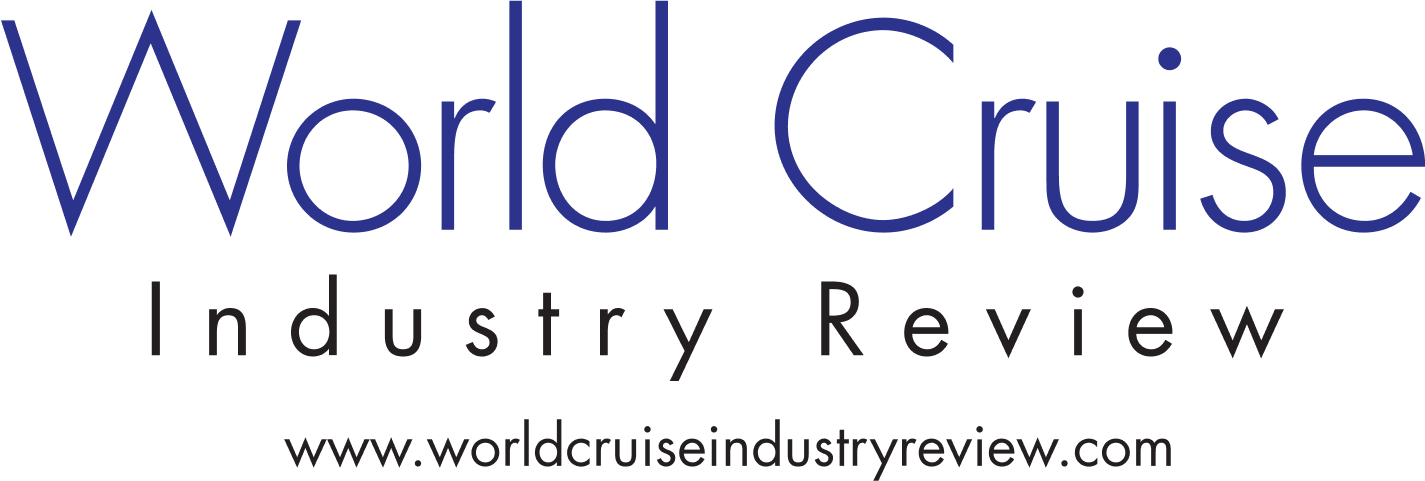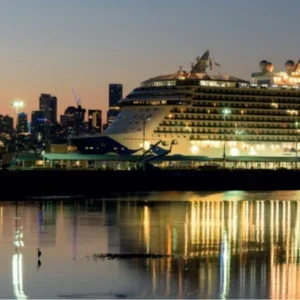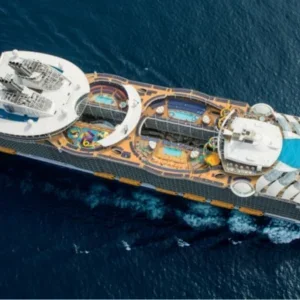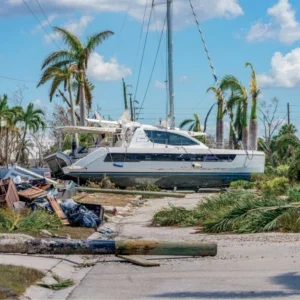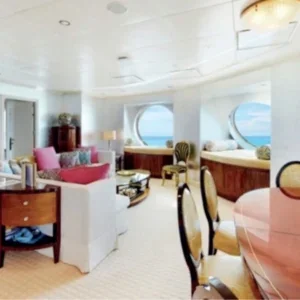The Covid-19 pandemic has had an immense public health impact, and caused significant death and suffering. Our collective response to the pandemic has also, in turn, created substantial economic effects across many sectors of our economy. The cruise industry is among the hospitality sectors that have been especially impacted by these events. The industry has been nearly shuttered since mid- March, with hundreds of ships in the world’s fleets idled, crews sent home, employees furloughed or let go, and people left with less opportunity to enjoy leisure activities that are important to them.
While the cruise industry, and the connected industries and nations that are economically linked to the industry, are keenly interested in resuming sailing, their leaders recognise that the economic impact of suspending operations cannot be addressed until the public health risks associated with the pandemic are appropriately mitigated in a shipboard environment.
The Healthy Sail Panel was convened at the request of cruise industry leaders Royal Caribbean Group and Norwegian Cruise Line Holdings. The panel was given the charge to closely examine every aspect of the cruise ecosystem, and recommend the most effective, scientifically sound ways to make the cruise experience healthier and safer.
The paramount goal and guiding principle of our work was to define a set of protocols and procedures that would protect guests, crews, and the communities cruise ships visit from SARS-CoV-2 and reduce the risk of transmission below the level people would experience in other normal activities. Our recommendations are rooted in the best scientific and public health information available, and offer guidance that we believe will be valuable to the cruise industry, and perhaps to other industries seeking to better protect the health and safety of their customers and employees.
We look forward to sharing these recommendations with the overall cruise industry as well as with the public. We also recognise that our understanding and knowledge of SARS-CoV-2 is evolving daily, and that these plans will need to evolve to incorporate new science and practices.
Careful consideration
The pandemic presents serious challenges, but we believe that with the ongoing advances in areas such as testing and therapies, our recommendations provide cruise operators with a robust set of thoughtful preparations, innovations, strengthened protocols and enhanced facilities preparedness that will enable them to safely resume sailings.
These recommendations rely on the ability of the cruise operators to implement them with determination, care, and a strong commitment to protect the health and safety of guests and crew. Fortunately, the panel’s experience over the past four months has been that cruise operators are approaching the challenges presented by the Covid-19 pandemic in a thoughtful, positive and aggressive manner, and – to ensure they have the highest levels of execution – are planning to employ appropriate auditing, verification, and continuous learning systems.
The challenge posed to the Healthy Sail Panel was complex. We were asked to identify protocols that would enable cruise operators to resume operations in ways that would minimise risk and would protect guests, crew, and destination communities. We endeavoured to craft protocols that would offer a high assurance of safety for these important constituencies. It is important to note that while the panel was carefully assembled to draw upon experts in diverse and relevant areas of public health, infectious disease, biosecurity, hospitality and maritime operations, none of us were experts in all aspects of the cruise industry. However, the detailed planning already completed by cruise operators with whom we collaborated to advance these goals of safety was instrumental in providing us a framework from which to begin our discussions.
As part of our deliberations, we immersed ourselves in the challenges associated with reducing risk and increasing safety, and we applied careful consideration to every touchpoint of the cruise experience. We invested time in understanding the complexities of operating cruise ships and the challenges that might impact – and be impacted by – our recommendations, and we considered how best to apply public health principles to these complex endeavours.
In pursuing these goals, we considered the latest scientific evidence surrounding SARS-CoV-2. We also studied the experiences of cruise operators with past outbreaks early in the pandemic to inform best practices moving forward. It was apparent to us that these operators were attempting to address a crisis without the benefit of systematic planning rooted in science, and the associated procedures that would best ensure guest and crew safety.
The next steps
These early and tragic experiences informed our deliberations. Moreover, the application of evolving science, technology and knowledge about addressing SARS-CoV-2 have also helped reduce the risks revealed by these early experiences. Looking towards the future, we believe we have charted a path for a healthy and safe return to operations. Our comprehensive report represents a holistic plan to reopen the cruise industry in the safest ways possible.
Safely returning more elements of our leisure sector is critical to helping people return to a life of normalcy. We believe that taken in totality, our recommendations are able to help provide these assurances.
To summarise, our recommendations are centred around four primary themes:
■ Keep SARS-CoV-2 off ships: cruise operators must be rigorous in their efforts to prevent anyone with a SARS-CoV-2 infection from boarding a cruise ship, which is the most important step to reducing overall risk.
■ Mitigate the risk of infection: cruise operators must employ vigilant practices to mitigate the risk of transmission on board, including employing proper distancing, handwashing and mask-wearing practices, as well as ensuring careful activity planning and venue management.
■ Protect destinations: when visiting a destination, cruise operators must be diligent in their planning to reduce the risk of guests and crew contracting the virus and to protect the communities that they visit and the people who live there.
■ Detect and contain SARS-CoV-2: in the event that there is a suspected or confirmed case on board, cruise operators must be prepared to execute a carefully planned response that cares for the affected individual and their party, while simultaneously protecting others from exposure.
We believe that if cruise operators address these four challenges with the detailed recommendations contained in our report, it will establish a careful approach for returning to operations.
These protocols are based on a complete analysis of the cruise journey, as well as on today’s understanding of the disease. That said, with new scientific and public health opportunities, including advances in testing, treatments, vaccines, emerging technologies and other innovations, cruise operators’ return-to-service plans will require ongoing, iterative adjustment and improvement to further enhance the safety of passengers, crew, and destination communities. Just as cruise operators are planning continuous improvement protocols, we will also refine our recommendations as our scientific understanding of this disease evolves.
Cruise operators have demonstrated their commitment to adopting numerous new protocols to implement the recommendations made by the panel. In their return to sailing, cruise operators should use a phased approach to demonstrate that protocols can be successfully implemented on board their ships before returning to full operations with guests on board.
Operators will be adjusting to many new processes in terminals, on board their ships and at the destinations they visit. We see great benefit in testing these new procedures in a stepwise fashion, with a deliberate and careful expansion through a pre-determined series of phases. The panel recommends cruise operators develop the specific details of their phased return to service as part of their return to sailing planning. Ideally working with regulators, cruise operators should agree in advance for a defined set of sailings in graduated phases that would permit the cruise operator to move to the next step without seeking additional approvals.
A first step under this proposal would be a dockside simulation of a cruise using employees to role play guests. The pre-arrival and boarding protocols would be tested, along with a limited number of on-board activities. Independent observers could watch the process, and afterwards a full debrief with those observers would be done and corrective actions or modifications could be made. Following this, a short overnight cruise with a limited load factor would be conducted. Again, employees would simulate the role of guests and a wider array of on-board activities would be conducted and additional protocols tested. Similarly, an assessment and debrief with designated observers would follow. Next, a short cruise to a single destination would take place, preferably at a cruise operator’s privately owned and operated destination. This would allow testing of embark and debark processes as well as the private destination protocols. As cruise operators move to commercial sailings, initial cruises should be as simple as possible with limited destinations, controlled excursions and short trip lengths. Once these initial sailings are conducted and internally examined, it may be appropriate to carefully expand operations.
Overall, the panel believes a controlled, phased approach to the return to sailing would build confidence among cruise operators and regulators alike that the new protocols can be implemented successfully or adapted as needed before full operations resume.
Further action
Cruise operators should also implement a formal process to review health and safety experiences related to Covid-19 on cruises to enhance best practices and shared learnings for continuous improvement. Given the rapidly evolving nature of the science and best practices related to management of SARS-CoV-2, the panel discussed – throughout our work – the need to continuously learn from real world experience once sailing resumes.
As part of our process to develop these recommendations, we spent time studying and learning from the cruises that have already begun in the past few months. These conversations demonstrated the value of sharing learnings about what has worked and what has not worked across cruise operators. This is not a new approach for cruise operators. They already have extensive processes for reviewing incidents in the context of a marine environment, often in conjunction with outside experts such as the US Coast Guard and Classification Societies. We suggest developing similar procedures for reviewing Covid-19 incidents.
Overall, these recommendations are intended to work holistically as a set of complementary approaches that when woven together and implemented in totality, create a strong fabric of defence against the introduction and spread of SARS-CoV-2 infection on board cruise ships.
We believe these protocols help provide a path for ships to return to operations safely and that this multilayered approach can help protect passengers and crew against the risk of transmission. In closing, we would like to acknowledge the contributions from all parties, including public health advisers to individual cruise lines, CLIA, other cruise operators, in addition to countless contributors from Norwegian Cruise Line Holdings and Royal Caribbean Group. We also would like to acknowledge the Leavitt Partners team who managed the Expert Panel process, including the drafting and editing of this report.
We greatly appreciate the time, dedication, and care everyone has devoted to improving health and safety. We are proud to have been a part of this important and collaborative effort.
